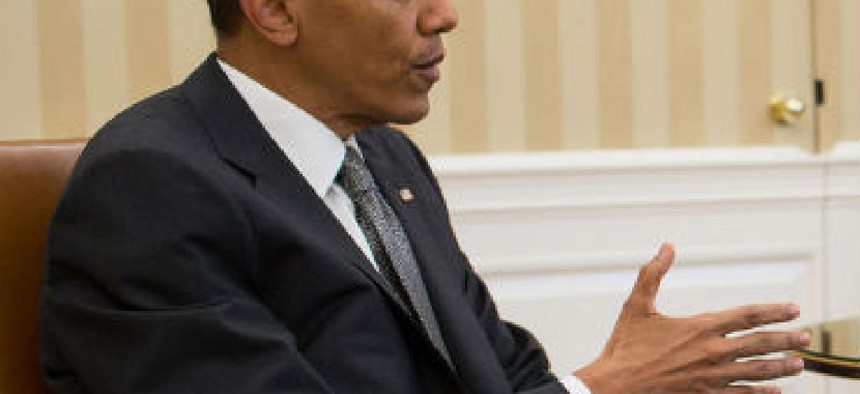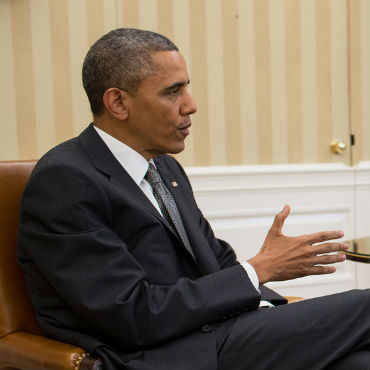White House opens up on Open Government 2.0

The next iteration of the National Action Plan on Open Government is in the works and the administration wants public input, according to a blog post from Deputy Chief Technology Officer Nick Sinai.

President Barack Obama discussed some open-gov projects in a recent speech on management reforms.
The next iteration of the National Action Plan on Open Government is in the works and the administration wants public input, according to a blog post from Deputy Chief Technology Officer Nick Sinai.
Sinai posed a series of questions that hint at possible policy directions for the administration. The post asks for suggestions on improving agency interaction with citizens in decision-making, boosting transparency in tracking federal spending, deciding what kinds of government information should be released to the public, and augmenting customer service for those seeking information or benefits. The administration is also looking for suggestions on information that could help entrepreneurs launch new businesses and ideas on policy areas that could benefit from the administration's "challenge grant" system of finding solutions to knotty problems through public contests.
Answers for many of these questions are already part of the open government agenda. A personalized federal government interface called My.USA.gov that streamlines individual interactions with government is in the pipeline – President Barack Obama even gave it a mention in a recent speech on management reforms. Obama's May executive order made open data the default standard for federal agencies. Changes to the way federal spending data are published are on the way, thanks to a June memo from the Office of Federal Financial Management.
Some spending data issues are also covered in the Data Act, currently pending in Congress. The legislation would require the government to release federal spending data in standardized, structured formats that allow for easy extraction and analysis.
Perhaps more interesting is what is not mentioned in the initial open data policy, or suggested as talking points for discussion of the second National Action Plan. John Wonderlich, policy director of the Sunlight Foundation , pointed out that secret government surveillance, national security law, lobbying, and money in politics appear to be off the table as open-government topics. "For these issues not to come up, it looks like avoidance from the White House rather than affirmative planning," Wonderlich told FCW.
Sinai said that 24 of the 26 original commitments from the Open Government Action Plan have been realized. However, Wonderlich said applause for that might not be called for. Many of the commitments were vaguely worded and undefined, such as improving Freedom of Information Act administration, increasing transparency in spending, and creating a more effective and responsive government. "A lot of the commitments could be met by doing almost nothing," Wonderlich said.
The White House is accepting feedback through Sept. 23.
NEXT STORY: Calculator takes the guesswork out of telework



